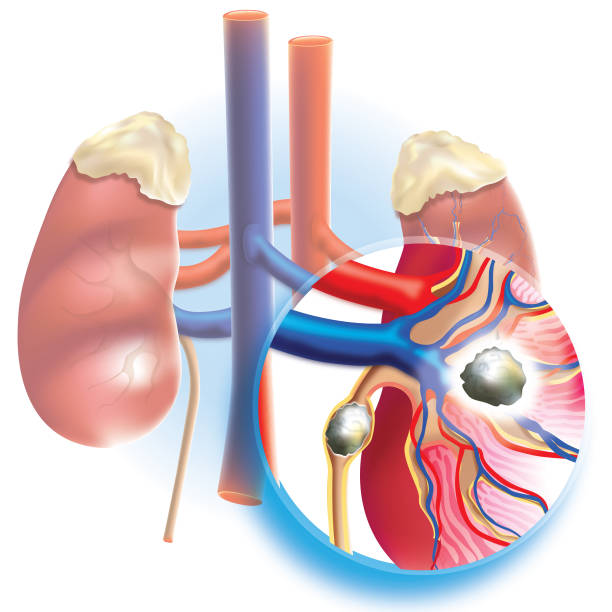Scientists have long understood that the brain is an energy-intensive organ, consuming about 20% of the body’s total energy despite accounting for only 2% of body weight. However, new research from the University of Kentucky’s Sanders-Brown Center on Aging has provided fresh insights into how energy utilization in the brain directly influences sleep patterns. This discovery could pave the way for new treatments for sleep disorders and neurological conditions like Alzheimer’s, epilepsy, and diabetes.
The Brain’s Energy Sensors: A Key to Sleep Stability
The study, recently published in the Proceedings of the National Academy of Sciences, highlights the role of ATP-sensitive potassium (KATP) channels as crucial energy sensors in the brain. These channels help regulate sleep-wake cycles and ensure smooth transitions between different sleep stages, such as slow-wave sleep and REM sleep.
Led by Nicholas Constantino, a doctoral neuroscience student, and overseen by Shannon Macauley, Ph.D., the research was a collaborative effort between multiple departments, including physiology, neuroscience, Sanders-Brown, and the Central Nervous System-Metabolism Centers of Biomedical Research Excellence (CNS-Met COBRE). Using advanced techniques like EEG monitoring and genetically modified mouse models lacking KATP channels, the researchers explored the direct impact of brain metabolism on sleep.
“Our study shows that even small changes in energy usage can profoundly impact behavior,” said Macauley, an associate professor of physiology in the UK College of Medicine.
Metabolism’s Unexpected Role in Sleep Quality
One of the most striking findings of the study was that KATP channels play a previously unrecognized role in regulating sleep. These channels, which help link metabolism and neural excitability, were found to have a daily rhythm in their activity. This circadian rhythm suggests that they help dictate when and how well we sleep.
“We did not know that KATP channels on neurons display a circadian rhythm of expression that suggests a role in regulating sleep,” Macauley explained. “Additionally, we discovered that KATP channels regulate lactate levels, a key metabolite for transitioning between sleep and wakefulness.”
This discovery is crucial because lactate, a byproduct of glucose metabolism, has been increasingly recognized as a key player in brain function. Fluctuations in lactate levels influence neural activity, which in turn affects sleep quality and transitions between sleep states.
What Happens When Energy Sensing Fails?
When KATP channels are impaired, the brain’s ability to monitor and regulate its own energy needs is disrupted. This has far-reaching consequences, affecting neurotransmitter production, cognitive function, and even emotional stability.
“When cells lack the ability to assess their own metabolic needs, essential processes like neurotransmitter synthesis become compromised, which in our study was linked to impaired cognition and increased anxiety,” Macauley noted.
The implications of these findings extend beyond sleep disorders. Many neurological diseases, including Alzheimer’s, diabetes, and epilepsy, are associated with both metabolic dysfunction and sleep disturbances. This study suggests that disruptions in KATP channel function could be a common underlying factor in these conditions.
A New Therapeutic Avenue for Sleep Disorders?
Perhaps the most exciting aspect of this research is its potential to lead to new treatments. Since FDA-approved drugs targeting KATP channels already exist, this discovery opens up new possibilities for restoring sleep in individuals suffering from neurological conditions.
“Most importantly, we found that KATP channels have a profound impact on sleep, particularly in enabling smooth transitions between wakefulness, restorative slow-wave sleep, and REM sleep,” Macauley said.
Given the growing recognition of sleep as a cornerstone of overall health, targeting KATP channels could offer a promising new approach for improving sleep quality and, by extension, cognitive and emotional well-being.
Fuel Utilization: A Key Driver of Sleep and Wakefulness
The overarching message of the study is clear: how the brain senses and utilizes energy has a profound impact on both sleep and wakefulness. This means that metabolic health is intrinsically linked to sleep quality, cognitive function, and emotional regulation.
“Altering the way the body can sense and use fuel can deeply impact the way we sleep and our behaviors while we are awake,” said Macauley.
As researchers continue to unravel the intricate connections between metabolism and sleep, this study marks an important step toward understanding how energy regulation affects brain function. With further research, we may soon have new, metabolism-based therapies to improve sleep and overall brain health.
Final Thoughts: A New Era of Sleep Science
This groundbreaking study from the University of Kentucky has shed new light on the deep connection between energy metabolism and sleep regulation. By identifying KATP channels as key players in maintaining stable sleep-wake cycles, researchers have opened up exciting new possibilities for treating sleep disorders and neurological diseases.
As science continues to explore the brain’s complex relationship with metabolism, one thing is clear: how we fuel our brains determines how well we sleep—and, ultimately, how well we live.
Reference: Nicholas J. Constantino et al, ATP-sensitive potassium channels alter glycolytic flux to modulate cortical activity and sleep, Proceedings of the National Academy of Sciences (2025). DOI: 10.1073/pnas.2416578122






